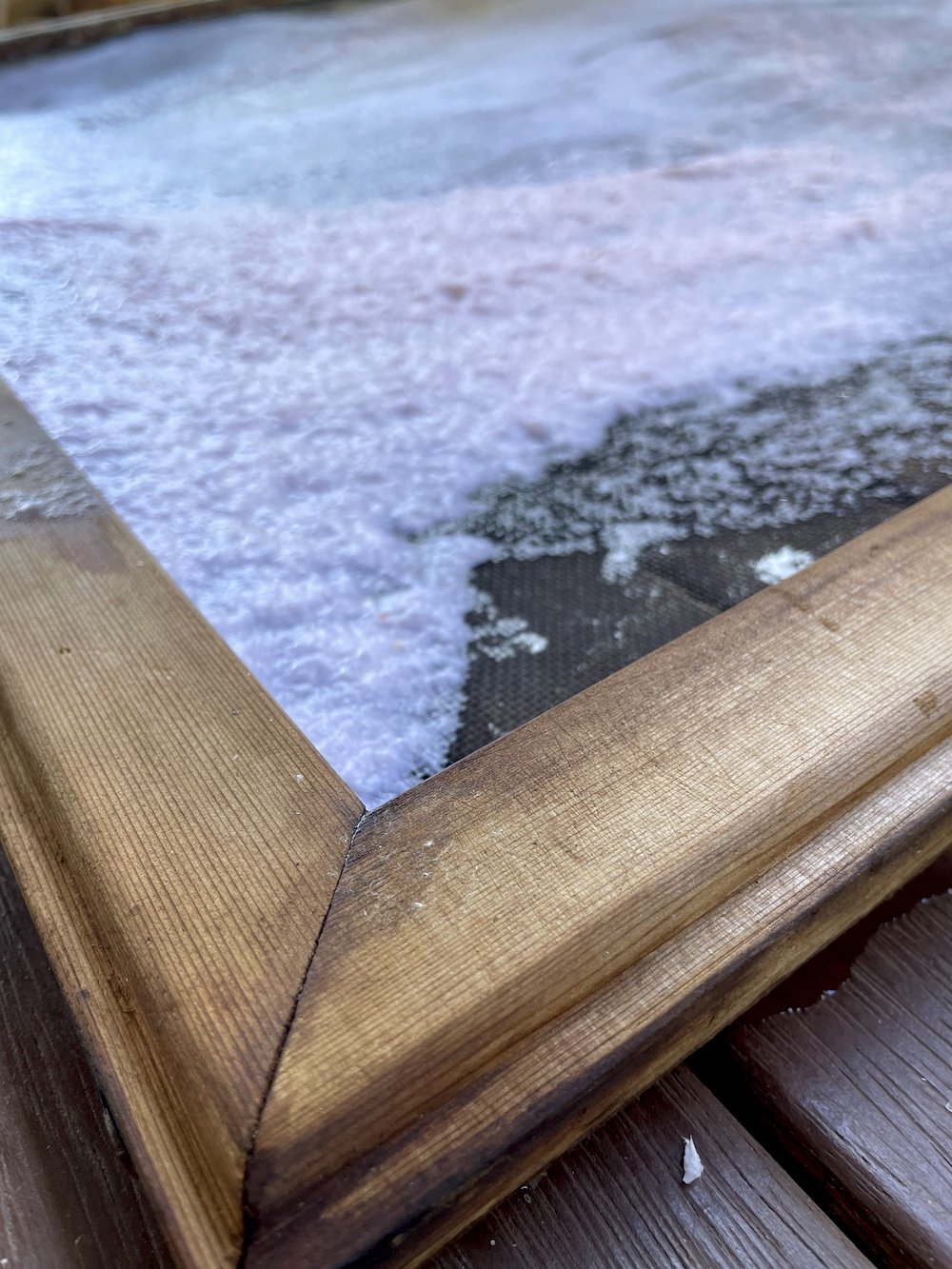Is Terra Tag Really Eco-Friendly? The Proof Is in the Paper.
If you’ve been wondering whether Terra Tag’s sustainable name badges and lanyards are actually eco-friendly—or just marketing fluff—pull up a chair. Let’s take a peek under the bonnet (or under the pulp vat!) to see what really goes into our products and why we believe small changes can make a big difference for the planet.
1. The Heart of Terra Tag: Upcycled Paper
At Terra Tag, we start with paper that’s already in the world. From office scraps to school offcuts, we rescue every piece from the bin and give it a new lease on life. No virgin paper here—just 100% recycled and upcycled pulp, carefully blended in upcycled equipment (yep, a secondhand café blender!) and dried in our handmade drying box.
Why It Matters: We’re actively diverting waste from landfill, reducing the energy needed to process new paper, and cutting back on emissions associated with virgin paper production.
2. No Harmful Glues or Inks
Worried about toxic adhesives? No need. Our name badges use zero adhesives; for our wristbands, we rely on an eco-tape that decomposes without leaving a nasty trail. And that vibrant printing? We use water-based inks. So no icky solvents or harsh chemicals to ruin anyone’s day (including the worms, who are big fans of our biodegradable goodies).
Why It Matters: Fewer chemicals means a friendlier footprint for soils, waterways, and event attendees.
3. 100% Biodegradable Lanyards
Ever seen a plastic lanyard floating around your junk drawer for years after a conference? We have, and it’s not a pretty sight. Our lanyards are made from undyed, natural cotton—soft to wear and safe for the compost or even the rubbish bin, where they’ll break down in five to six months.
Why It Matters: No microplastics or synthetic fibres to pollute our oceans. Plus, your neck will thank you for the comfier fabric.
4. Calculating CO₂ Savings
We love data, which is why we provide a handy calculation for how much CO₂ your order saves compared to traditional plastic badges. Here’s how it stacks up for 600 attendees:
Traditional Plastic Badges & Lanyards:
72 kg of CO₂ emitted in totalTerra Tag’s Sustainable Badges & Lanyards:
6 kg of CO₂ emitted in total
Bottom Line: By switching to Terra Tag, you save about 66 kg of CO₂ for 600 attendees. Now, that’s some sweet eco-cred!
5. From Single-Use to Plantable
Many of our badges are infused with seeds—like a little garden on your chest! After your event, guests can plant the badge (following the planting instructions on our website, of course). If they’re not up for a bit of gardening, they can toss it in the compost or paper recycling bin.
Why It Matters: Traditional plastic badges stick around long after your event ends. Plantable paper puts nutrients back into the earth instead.
6. Durability & Style for All Kinds of Events
You might think that eco-friendly equals flimsy, but we’re here to bust that myth. Our recycled, seed-infused paper is 300 GSM—a whopping 67% thicker than many other plantable badges. That extra thickness means no plastic card holder or hole reinforcement is needed. Plus, our special finish allows for vibrant, high-quality prints so your brand design really pops.
Why It Matters: Attendees can wear these badges for multi-day events without them falling apart. They look great and feel sturdy.
7. A Story of Upcycled Ingenuity
We love hearing people say, “Wait, you made that?” Yes, indeed! From our secondhand café blender to our homemade drying box (crafted from bike boxes and old flyscreens), we’re all about reusing materials in creative ways. This setup keeps our water usage low—under 20 litres per vat session—and ensures each sheet dries smoothly, courtesy of the glorious Aussie sunshine.
Why It Matters: We minimise resource consumption and carbon emissions at every step, proving sustainability can be both practical and delightfully quirky.
8. But How Do You Compare to Other ‘Eco’ Alternatives?
It’s not just plastic we’re up against. There are other “green” badge options out there—like biodegradable plastic or wooden badges. While these alternatives can be better than standard plastic, they often require new raw materials or involve more complex processing.
Terra Tag’s Edge:
100% upcycled paper (zero reliance on virgin materials).
No adhesives, no harmful dyes, and a fully compostable lanyard.
A closed-loop mindset: from rescued scraps to your event, then back to nature.
9. Future Steps & Transparency
We don’t currently hold formal certifications (FSC or carbon offset programmes), but we’re taking steps to explore local council programmes and verifying our carbon calculations. Until then, we remain committed to clear, honest communication. Every badge’s final resting place is either the soil or the compost—never a landfill that’s going to be stuck with plastic for centuries.
So, is Terra Tag truly eco-friendly? We certainly think so! Our process revolves around giving waste paper a second life, cutting out plastics entirely, and crunching the numbers to back it up. No greenwashing, just a genuine effort to reduce waste and reimagine what “sustainable” can look like—one badge at a time.
Ready to go green for your next event? Check out our product range or drop us a line to chat further about how Terra Tag can lighten your event’s environmental footprint.
Thanks for reading, and here’s to a future where every paper scrap gets a second chance to shine—and maybe even sprout. Cheers!






